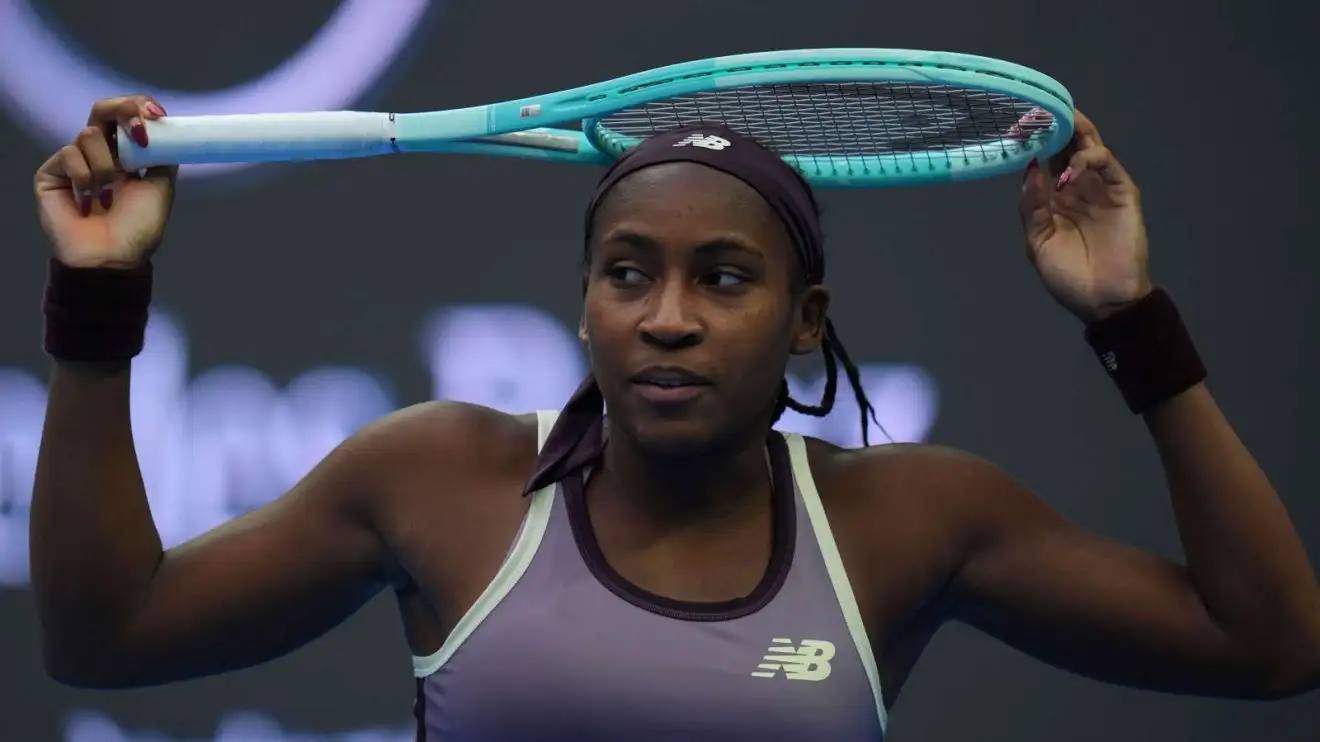
Coco Gauff has candidly expressed her discomfort with the decision to host the WTA Finals in Saudi Arabia, a move that has sparked considerable debate and criticism within the tennis community. The announcement in April that Riyadh would be the site for the prestigious season-ending event for the next three years has brought attention not just to the tournament itself, but also to the broader issues surrounding human rights and gender equality in the kingdom.
### Concerns Amid Celebration
This decision has not gone unnoticed by some of the sport’s most legendary figures. Martina Navratilova and Chris Evert, two of the greatest champions in women’s tennis history, voiced their concerns in a joint opinion piece for the Washington Post earlier this year. They highlighted the troubling human rights record of Saudi Arabia, particularly regarding women’s rights and LGBTQ+ issues, arguing that such a location is incongruous with the values of the sport. Despite the criticism from these tennis icons, the prevailing narrative from players heading into the event has been largely supportive, albeit with some reservations.
Gauff, a rising star in women’s tennis and a prominent advocate for social justice, did not shy away from addressing the complexities of her participation. “I would be lying to you if I said I had no reservations,” she admitted during a recent press conference. Her commitment to advocating for the LGBTQ+ community is personal; she has friends and family members who identify as part of that community, making the concerns surrounding the tournament even more poignant for her. “I hear your concerns. I really do feel like, in order to ignite change, you have to start little by little,” she explained, emphasizing the importance of engagement in difficult conversations.
### The Path to Change
Gauff reflected on her experiences growing up as a Black woman in America, drawing parallels between the struggles for racial equality and the fight for gender and LGBTQ+ rights. “If we shied away from it then, where would we be now?” she asked rhetorically, reinforcing her belief that visibility and participation can lead to progress. The teenager articulated a hopeful perspective: “I do think that sport can have a way to open doors to people.” She noted that the Saudi government aims to promote tennis by introducing a million new players by 2030, and suggested that engaging with the country might be a necessary step toward realizing that goal.
### The Significance of the WTA Finals
The WTA Finals, taking place under these controversial circumstances, hold significant importance for the players involved, particularly in the race for the year-end No. 1 ranking. Aryna Sabalenka finds herself in a fierce battle to defend her top spot against Iga Swiatek. Sabalenka reclaimed her position last month under unusual circumstances, as Swiatek faced penalties for not fulfilling mandatory tournament requirements. The dynamics of this competition have added intensity to an event that is already a highlight of the tennis calendar.
Last year, Swiatek dominated the Finals, but this year the stakes are even higher for Sabalenka, who has managed to build a larger lead over her rival. Swiatek has not competed since the US Open, choosing to take a break to implement a coaching change. The addition of Wim Fissette, who has joined Swiatek’s team after parting ways with her long-time coach Tomasz Wiktorowski, signifies a new chapter in her career.
### Rybakina’s New Partnership
Adding another layer to the tournament’s narrative, Elena Rybakina recently announced a significant change in her coaching staff, revealing that she will be working with former Wimbledon champion Goran Ivanisevic starting next season. This marks Ivanisevic’s debut on the WTA Tour after previously coaching Novak Djokovic. Rybakina expressed her excitement about the new partnership, emphasizing that her separation from previous coach Stefano Vukov was amicable and part of a natural progression in her career.
Rybakina is set to compete in her first tournament since dealing with back issues, further adding to the stakes of the WTA Finals. Her match against Jasmine Paolini will be closely watched, as will Sabalenka’s opening match against Zheng Qinwen.
### The Competition Landscape
The other group at the Finals features formidable competitors, including Swiatek, Gauff, Wimbledon champion Barbora Krejcikova, and Jessica Pegula. This lineup promises to deliver high-stakes matches that could shape the future of women’s tennis as the season concludes.
An undefeated champion at the WTA Finals stands to earn a record $5.16 million, a financial incentive that underscores the prestige of the event. As Gauff, Rybakina, and the other competitors prepare to battle for not just titles but also for the future of women’s tennis, the complexities of the tournament’s location remain a critical backdrop to the unfolding drama on the court.
### Conclusion: A Balancing Act
As Coco Gauff steps onto the court in Saudi Arabia, she carries with her the weight of expectation and the hopes of many who seek change. Her journey in Riyadh will be emblematic of the broader struggles faced by athletes who navigate the intersections of sport, culture, and social justice. While the tournament unfolds, the conversations about its implications will likely continue, reflecting the dynamic nature of women’s tennis as it strives to balance competitive ambition with a commitment to ethical standards. As the players vie for glory, the underlying issues will not be forgotten, shaping the narrative of this year’s WTA Finals in a way that transcends sport itself.
Leave a Reply